When Summer arrive, the need to keep cool comes with it. While air conditioners have long been the go-to solution for beating the heat, heat pumps are becoming an increasingly popular alternative.
Heat pumps are versatile systems that can not only provide cooling, but also heating, making them a great all-in-one solution for year-round comfort. In this article, we’ll take a look at the different types of heat pumps available for cooling, and help you decide which one is right for you.
Heat pumps for cooling
Heat pumps are an efficient way to cool a home or business. Heat pumps can use either air source or ground source technology to extract heat from the air or ground and transfer it outside to cool the building.
Air source heat pumps work by extracting heat from the air inside a building and transferring it outside. Ground source heat pumps use a system of pipes buried in the ground to extract heat from the ground and transfer it outside. Both air source and ground source heat pumps are efficient and effective cooling solutions.
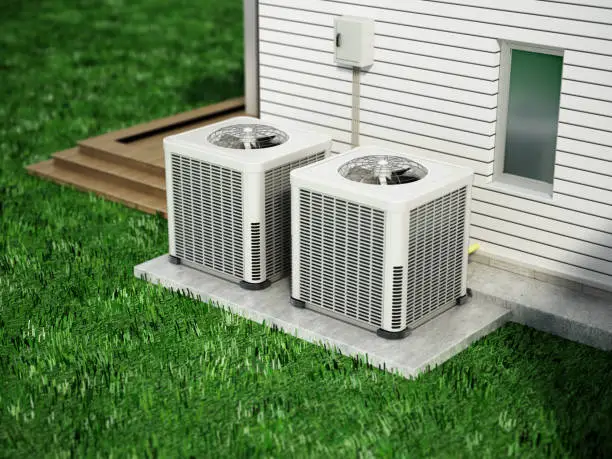
How are heat pumps effective at cooling?
As well as heating, heat pumps are efficient at cooling because they use only 20% of the energy when compared to heating. They cool a room as well as an air conditioner. They do this by working in reverse so warm indoor air is transferred to outside. A refrigerant is built in to do this.
Air Source Heat Pumps
Air source geothermal heat pumps are a type of heat pump that uses the air outside to cool your home. They work by extracting heat from the air and transferring it to a refrigerant, which is then used to cool the air inside your home.
These heat pumps are typically more energy-efficient than traditional air conditioners because they use the natural heat exchange process of the outside air to cool the inside air. This means they use less energy to achieve the same level of cooling as an air conditioner.
One example of an air source geothermal heat pump is the Fujitsu Halcyon Mini-Split. This heat pump is known for its energy-efficiency and low maintenance requirements. It also features a built-in air filter, which helps to remove pollutants from the air and improve indoor air quality.
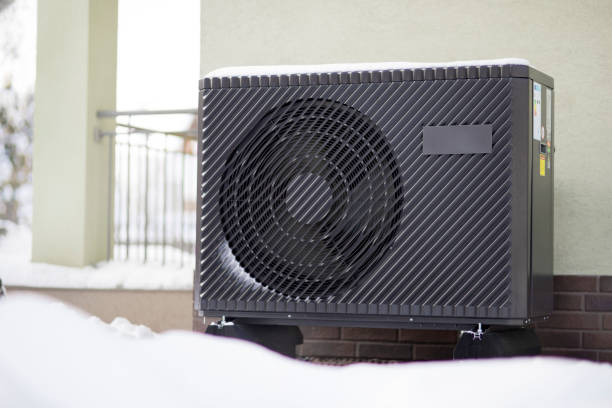
Air to Water Heat Pumps
Air to water heat pumps are another type of heat pump that uses the air outside to cool your home. Unlike air source geothermal heat pumps, however, air to water heat pumps transfer the heat they extract from the air to water, which is then used to cool your home.
This type of heat pump is a great option for those who want to use their heat pump for both cooling and heating, as the water can also be used to provide hot water for your home.
This type of heat pump not only cools your home, but it also provides hot water for your home, making it a cost-effective and energy-efficient option. It also features a built-in air filter.
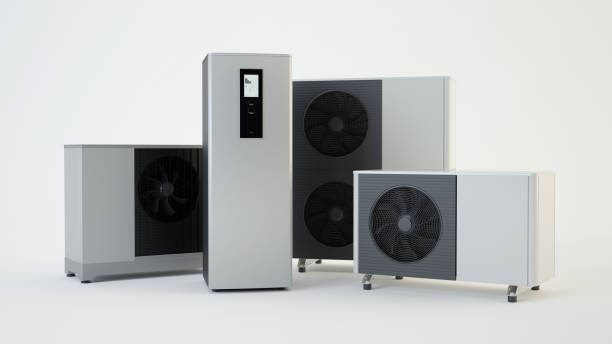
Ground Source Heat Pumps
Ground source heat pumps are a type of heat pump that uses the ground outside to cool your home. They work by extracting heat from the ground and transferring it to a refrigerant, which is then used to cool the air inside your home.
This type of heat pump is more energy-efficient than air source geothermal heat pumps because the ground temperature is more stable and consistent than the air temperature. This makes it easier to extract heat from the ground and transfer it to the refrigerant.
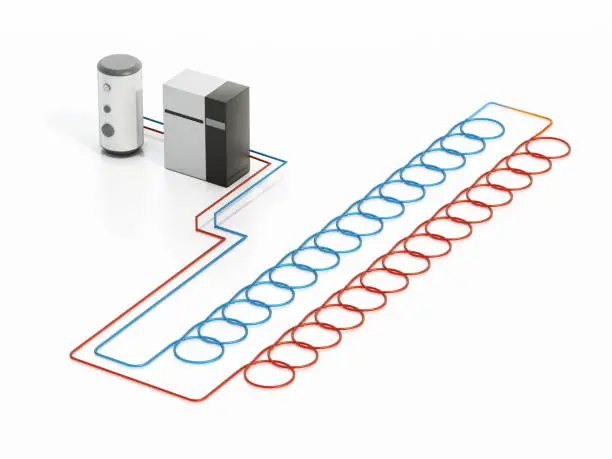
Heat Pump cooling costs compared to other systems
It’s important to note that when comparing the cost of a heat pump to other cooling methods, the initial purchase and installation cost should not be the only factor considered. The long-term cost savings from increased energy efficiency and lower maintenance costs should also be taken into account.
When compared to traditional air conditioners, heat pumps tend to be more expensive to purchase and install, but they can save homeowners money on their energy bills in the long run. Heat pumps can be up to 50% more energy efficient than traditional air conditioners. This means that over time, the cost savings on energy bills can offset the initial higher cost of purchasing and installing a heat pump.
When compared to window units, heat pumps are more expensive to purchase and install, but they are also more energy efficient and can provide both heating and cooling. This means that a single heat pump can replace multiple window units, saving homeowners money in the long run.
When compared to central air conditioning, heat pumps are generally more expensive to purchase and install. However, central air conditioning systems require ductwork, which can add to the cost of installation.
Heat pumps do not require ductwork, which can save homeowners money on installation costs. Additionally, heat pumps can save you money on energy bills in the long run due to their increased energy efficiency.
Maintenance for heat pumps
When it comes to maintenance considerations for heat pumps, there are a few key things to keep in mind:
Air Source Geothermal Heat Pumps: These heat pumps typically require minimal maintenance. They have a long lifespan, and the main maintenance required is to clean or replace the air filter every few months. Additionally, it’s important to have the system checked by a professional at least once a year to ensure that it’s running efficiently.
Air to Water Heat Pumps: These heat pumps also typically require minimal maintenance, similar to the air source geothermal heat pumps. However, since it’s also a water-based system, it’s important to maintain the water system, such as checking for leaks, and making sure the water is clean. It’s also important to have the system checked by a professional at least once a year to ensure that it’s running efficiently.
Ground Source Heat Pumps: These heat pumps require the least maintenance, as they are typically buried underground. They have a long lifespan and the main maintenance required is to have the system checked by a professional at least once a year to ensure that it’s running efficiently.
It’s also important to note that regular maintenance can help ensure that the heat pump is running efficiently, which can help prolong its lifespan, save money on energy bills, and avoid costly repairs down the road.
Regular cleaning or replacement of the air filter, and maintaining the water system if it’s an air to water heat pump, can also help prolong the lifespan of the heat pump and ensure that it’s running at optimal performance.
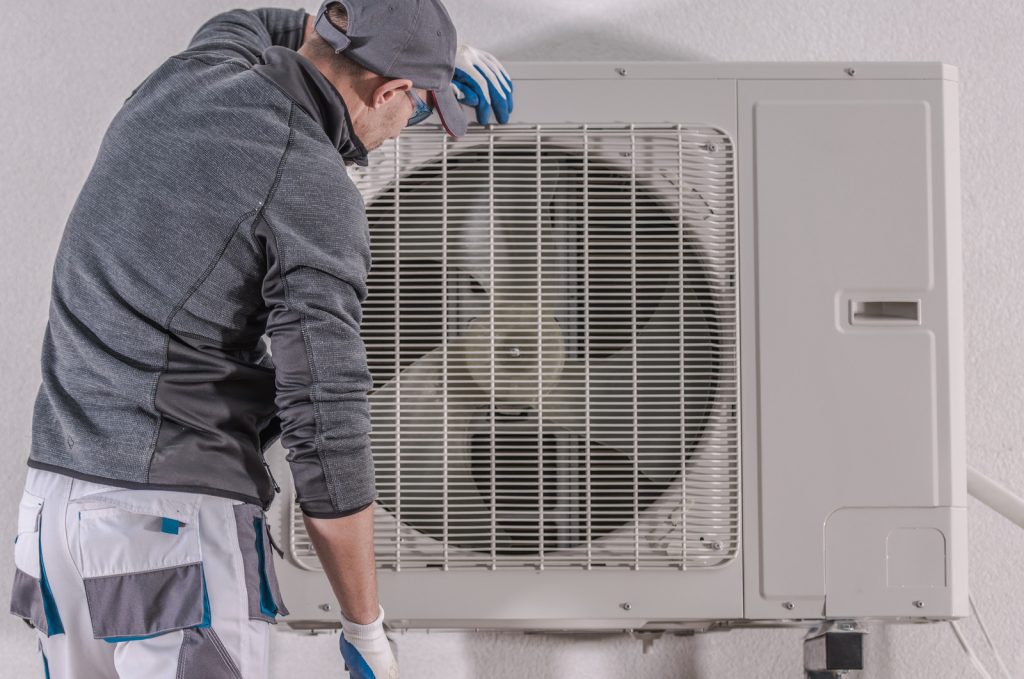
Do you need a supplementary system for cooling?
A supplementary system for cooling is not normally needed when using heat pumps for cooling, as heat pumps are designed to provide both heating and cooling. However, in some cases, a supplementary system may be required to supplement the heat pump’s cooling capacity in order to achieve the desired level of cooling.
For example, in extremely hot climates, a heat pump may struggle to keep up with the cooling demand, in this case, a supplementary cooling system like an air conditioner, can be added to work together with the heat pump to provide additional cooling.
Similarly, in homes with a large square area, a supplementary cooling system may be required to ensure that every room in the house is cool and comfortable.
Another scenario where supplementary system might be needed is when the heat pump is being used in a commercial setting, where the cooling demand is much higher than in a residential setting. In this case, a supplementary cooling system may be required to meet the cooling needs of the building.
Do heat pumps last longer than air conditioners in cooling mode?
Heat pumps usually have a lifespan of 15-20 years, while the lifespan of an air conditioner is around 10-15 years. This is because heat pumps have fewer moving parts and are designed to be more durable than air conditioners. Additionally, heat pumps do not have to work as hard as air conditioners to provide cooling, which can also contribute to their longer lifespan.
It’s important to note that the lifespan of a heat pump or air conditioner can be affected by factors such as proper maintenance, usage, and the environment. Regular maintenance can help prolong the lifespan of a heat pump or air conditioner by ensuring that it’s running efficiently and addressing any issues before they become major problems.
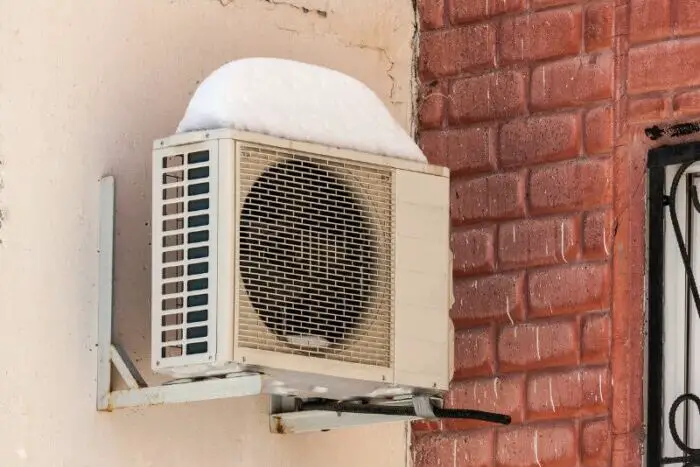
Summary
Heat pumps are a versatile and energy-efficient alternative to traditional air conditioners, they can provide both heating and cooling. In this article, we discussed the different types of heat pumps available for cooling, which are air source geothermal, air to water heat pump and ground source heat pumps.
Each type of heat pump has its own advantages, such as being more energy-efficient, providing hot water, or being more sustainable. Cost considerations and the maintenance needs for each type of heat pump have also been discussed.
Read related articles:
